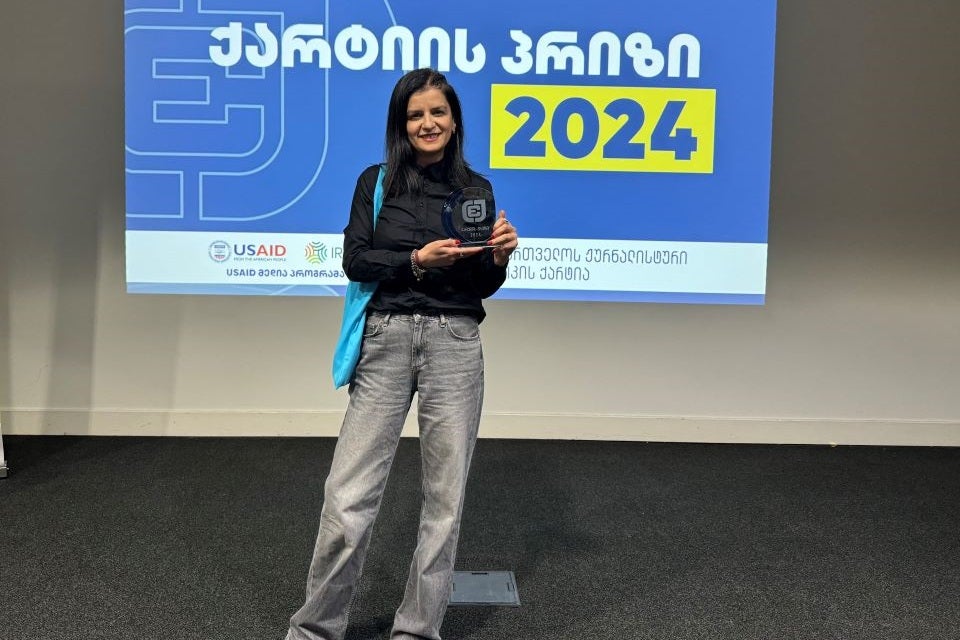Award for reporting on women’s rights and gender equality goes to Nino Tarkhnishvili
Date:

As the number of Internet users keeps growing and social networks, applications and chats are more widely used, cases of cybercrime are also gaining prevalence. Blackmail, intimidation and threats of publicizing private lives in cyberspace are among the most widespread global problems that are especially relevant to women.
In Georgia too, women are the most common victims of privacy violations. It is very important to raise public awareness about preventing or responding adequately to such crimes. In this process, media outlets and media representatives play a distinctive role. Nino Tarkhnishvili, a reporter at Radio Liberty’s Tbilisi Bureau, is among them and has been reporting on women’s rights and gender equality for many years.
One of the outstanding articles that Ms. Tarkhnishvili published this year refers to a topical issue for women: blackmail through the dissemination of private images and videos. Using real stories and based on expert opinions, the author provides a detailed explanation of the specific nature of the crime in the article “The youngest victim is 9 years old and the oldest one is 84 – when you are threatened with publishing intimate photos”. In addition, she offers clear guidance to women on how the law protects them, what rights they have and what they can do if they encounter such a problem. Distinguished by its in-depth coverage of the issue and the adherence to ethical and professional standards, the article was announced the winner in the category of reporting about women’s rights and gender equality at the annual awards ceremony arranged for the representatives of Georgian media. Nino Tarkhnishvili received an award established by UN Women and the Georgian Charter of Journalistic Ethics.
“The number of women and girls whom I wrote about is much bigger, but they are silent, they are afraid,” Ms. Tarkhnishvili said after the award ceremony. “When it comes to blackmail, intimidation and threats of publicizing their private lives, photos and videos online, women not only remain silent but also get depressed so much that we have even had cases of suicide or attempted suicide. I wanted to write an article where women would share their stories with one another, describe how not to become a victim of cyber-blackmail and where to seek help if one is threatened. I also wrote about those who did not remain silent, turned to law enforcement and, most importantly, brought the perpetrators to justice. I think that if women who have similar experiences read this article, they will find answers to many questions - and find ways to overcome them. This is very important to me as a journalist. I am glad that the jury members who selected this article saw exactly what my goal was.”
The annual prize for reporting on women’s rights and gender equality is awarded within the framework of the Memorandum of Understanding between UN Women and the Georgian Charter of Journalistic Ethics. The initiative aims to encourage gender-sensitive coverage of relevant issues, support journalists, and showcase and recognize their contributions.
In 2024, the Media Prize was awarded within the framework of the UN Joint Programme for Gender Equality (UNJP4GE), supported by Sweden.